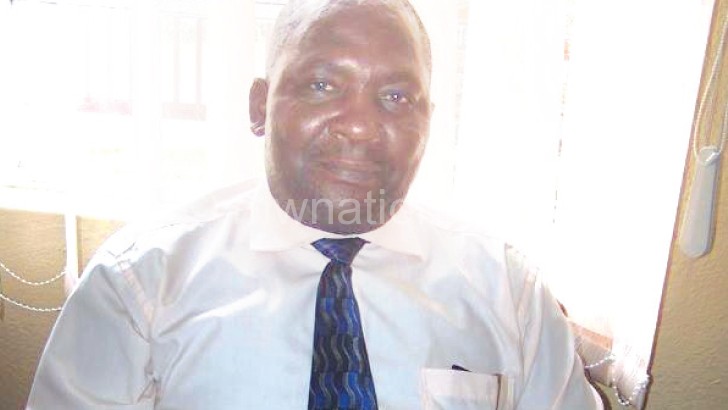‘Media landscape has been generally free’
As the world commemorated World Press Freedom Day this week, FATSANI GUNYA spoke to veteran media trainer, researcher and communications consultant Dr LEVI ZELEZA MANDA on various media-related issues.

agenda for the nation
Q
How has the Malawi media grown since the first professionally trained journalists graduated?
A
In terms of journalism training, the early post-one party era journalism trainers include KTZ Media Services, Grefa Communications and the Malawi Institute of Journalism. The University of Malawi degree programme only started in 1999 and its first graduates came out in 2003. There are also accredited journalism, communication and media degree courses at Blantyre International University (BIU), the Pentecostal Life University (PLU), African Bible College, and the Malawi Institute of Journalism. Cumulatively, these institutions have produced journalists and media practitioners that have great expertise in gathering, writing and reporting events.
At times, graduates from these colleges and universities have come up with great investigative stories that have shaken our country. However, the training is mostly archaic. For example, students are still taught the inverted pyramid style of writing stories even when worldwide journalism has gone largely narrative. Eminence/prominence, scandal, etc are still emphasised as news values while specialist areas such as business and budget reporting, health reporting, politics, parliament and development reporting are cursorily taught. Instead more time is dedicated to technical parts of the training such as photography, radio production, and TV production. I suspect the lack of analysis of issues emanates from this shoddy training.
Q
Passion, personal brilliance and academic qualifications; which one do you think closely mirrors our journalists in the country?
A
Some journalists are passionate about their work and exude occasions of brilliance. Unfortunately, in Malawi ‘you are the academic certificate you hold’ and journalists are yearning for certificates because the higher the certificate the better the pay and position. It is no wonder that the findings of the Worlds of Journalism Study indicate that the number of bachelor’s, master’s and even doctorate degrees among journalists and communication specialists has increased meteorically over the past 10 years.
Q
One of the top issues to have emerged in this era is that of ‘Cashgate’. As a media trainer, are you satisfied with how the media performed in reporting on the scandal?
A
Yes. Cashgate was thoroughly reported as a news event. And Malawi’s journalists must pat themselves on the back for helping the country to reveal such atrocious activities. There are other issues, such as the Mwanza Murders and Maizegate in the 1990s and 2000s where Malawian journalists performed satisfactorily. However, there is general failure to link Cashgate to other critical issues such as theft of drugs, tractorgate, and the alleged diversion of public funds by the Kamuzu Banda, Bakili Muluzi, Bingu wa Mutharika, and Joyce Banda regimes. What motivates people to commit such serious crimes? Systemic failure? I also see a general social failure as result of our laissez-faire attitude. All these crimes are perpetrated because we Malawians don’t protest enough for the corrupt to stop stealing. Condemnatory statements are not enough.
Q
In your own opinion, how free is the media in Malawi?
A
Since April 2012, the Malawi media landscape has been generally free. Journalists go about doing their work with little hindrance. Obtaining information would have been easier and Malawians would have been served better if the Access to Information (ATI) Bill had become law. The ATI Bill, on the other hand, provides for legal access to public information by all Malawians; not just journalists. It also protects whistleblowers. When journalists can collect and report correct information in a timely manner, the public is likely to appreciate better the role of the media. I am convinced the local community members know who is involved in the killing of people with albinism but fear may be preventing them from revealing the information. When the public feels safe and protected to easily give out information that would not be a problem.
Q
Some commentators say the local media industry doesn’t pay enough compared to other professions. How does the lack of economic independence of journalists compromise effective and professional reporting?
A
The 2010 Journalists Union of Malawi (Juma) survey revealed that most junior journalists were grossly underpaid. But I have heard testimonies from journalists who have since received salary increments and signed contracts with improved conditions of service. The improvements need to be researched and confirmed. The results of under-remuneration are obvious: chipondamthengo or corruption (bribe taking and seeking); political attachment for gratification, suppression of certain issues, amplification of some issues and, even, concoction of stories about people the journalist has been paid to defame. Journalists who can’t afford a meal or transportation fare cannot be independent.
Q
Can you point out areas where you feel the country’s media should improve on to best foster socio-economic development of Malawi?
A
Stories must be sustained. There is need for journalists to follow up on good, provocative stories such as the quota system of selecting students into public universities and get to a conclusion. Journalists are development agents and must set their own agenda for the nation. Reporting what politicians say and promise is good but that is tantamount to playing by the agenda of politicians. The media houses should also consider having in-house training and monitoring and evaluation units so that they improve on their own skills and generate their own information. Investigative journalism shouldn’t be restricted to what fails but what works. Let’s turn to appreciative journalism and get local solutions to our local socio-economic problems. n





